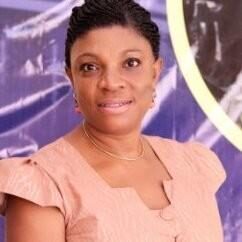By Lechi Eke
The missionaries came into my village with a jeep and two white buses. We heard about them two days before their arrival.
Two mornings before they came, we woke up to the town crier’s message that some benevolent people had chosen our village to stop over and show us some kindness. The sick and the poor should prepare to receive a helping hand. This meant the whole village since the village was made up of sick and poor folks. Even the village head was poor. His children’s clothes were threadbare and his trousers had patches.
Davida Sedar, her name made my pulse to quicken, sneaked into my mother’s hut with the pretence of collecting hot charcoals and whispered excitedly to me, “I think your time has come. You’ve always wanted to go to the city. This is your opportunity, You can follow the benevolent people out.”
“These are adventurous people,” I protested. “They go from place to place but I want to go to the city for the Golden fleece.”
“They know the Way,” she affirmed. “And when they show you the Way, remember to come back for me,” she said and scooped red hot charcoals at the sound of Mother’s shuffling feet and hurried out of the unwalled kitchen.
“What does she want?” Mother asked me, peering into my eyes suspiciously.
I said, “To collect fire.”
“I heard you two whispering and see, she’s made our fire small. She’s packed all the big hot charcoals,” she whined.
Mother was my father’s mother, a very disagreeable old woman who thought that the best way to raise children was by being wicked to them. She had chased my own mother away and had taken her place.
“What were you two whispering about?” she asked again bending down to stir the few red charcoals in the middle of the iron tripod wood cooker. She added more firewood and bid me fan the fire.
“She told me about the benevolent people, I replied because I knew if she asked me a third time, a slap or a head knock would accompany it.
“I think you’re hard of hearing. I told you, Keep away from them! Her grandma was a witch. She killed two of my children and your grandpa.”
“Yes,” I said not believing her.
Davida Leopold Sedar Senghor, of course that wasn’t her real name, she got it from Literature class. She was a sweet girl who made me forever proud. No one could tackle poetry like Davida. She could produce a précis of Nuit de Sine in five minutes flat. She knew what J. P. Clark is rambling about in Song of a Goat. She had a total understanding of Lenrie Peters’ The Fence. While we were still struggling with the confusing complex lines quite unconnected with one another in verses, Davida understood them perfectly. While we were struggling with identifying similes and metaphors, she knew metonymy and oxymoron; assonance and onomatopoeia. Davida knew what to do when they said compare and contrast, distinguish and differentiate while we wrestle with discuss! She even knew the significance of the Peace Week in Chinua Achebe’s Things Fall Apart, and why Okonkwo shouldn’t have a hand in the killing of Ikemefuna other than one shouldn’t kill another human being. That much we knew, and no further.
Davida was such a marvel in Literature class, and in fact every other class but Maths. Alas, Maths has no storyline and the Maths teacher had no time for imageries and sound effects. He only had time for if x=y and y=10, what is xy-20? Davida got lost in Maths like one dropped blindfolded in the middle of the Tenere desert, you look left desert sand, right, back and front , only ridged desert sands. She knew not how to apply the Pythagoras ‘ theorem. She could not figure out geometric progression, and was quite lost in algebra, but she ruled everywhere else. Davida was my sister in the African sense of the word. We came from the same grandpa.
My grandpa was a great man. Only a great man could marry Mother and another woman. Davida understood Mother’s problem by the power of Literature. She confided in me that Mother suffered what Mariama Ba’s heroine suffers in So Long A Letter. It’s the issue of jealousy: women shouldn’t marry other women’s husbands, Davida said to me.
Mother was a trouble detector. She sniffed out problems from unlikely places and then magnified them. She had perfect understanding of how evil operated. Davida’s grandma gave the witchcraft to her mother who gave it to all her children, she told me. I thought to myself, Well, at least that was a loving Mother in law who gave something to her daughter in law. Mother chased her own daughter in law away. Even now, according to her, Davida’s grandma rested not in her grave but continued to practise her witchcraft freely from there, for instance, she was responsible for my father who died, for his sister whose womb could not carry a baby to term, and for Mother’s arthritis and for her failing sight.
“Why doesn’t God stop her?” I cried in astonishment. This made me cynical about the God Mother served almost every hour. She attended Mass, said the Hail Mary as regularly as the town hall clock chimed time. If God was powerless why waste so much time serving him?
Weary with living in the village, and especially with Mother, I decided to go to the city. I would run away. I told no one else except my sister, Davida. She wanted to go too, but could not leave her mother who loved her and treated her well. We had finished the West African School Certificate Examinations, and looking forward to nothing at all. There was no higher institutions near us, and we had no one to pay for us to go to a faraway school. Our custom was to play under the moonlight in the village ogo during the dry season. The moon shone brightest and a million stars winked down at us from all over the great expanse of sky. In such a night, away from adult influence, Davida and I would talk. We were young adults, and we had needs. There were no prospects in the village. We talked about our chances under the moonlight. All we did was talk; there was no solution in sight. Our village was a dead end. Hardly did anyone go to the city. The poverty was crippling. Our roads were bad and the crops failed year after year.
Day after day, Mother with a whole lot of other women would attend Mass, morning, noon and evening to say the Hail Mary, and sing the songs, and listen to the priest speak Latin. Yet God did nothing for our village except keep us alive, maybe to kill us another day.
One day, we heard the town crier in the quiet of the early morning, announcing the coming of a benevolent people to our village. Mother returned from early morning Mass singing and dancing with her arthritis damaged legs. I did not ask her why she was so happy, but she asked me to ask her why, so I asked her why. She said the priest told them he prayed for our village that now God has heard: the benevolent people were coming!
I was at the grounds of my village grammar school, early, on the day they were to come, sweeping and clearing the grounds for a Naira or two because I was in dire need of cash. Also I wanted to see them and talk with them first. I expected white people, we all expected white people, but black people arrived. It was good a thing that I was there early for although they needed me, but they said they were in dire need of an interpreter, one who understood English Language well and could speak to our people in our dialect. Davida! There was no one else I knew better than my sister, Davida. I ran home in great haste to call her. I threw caution to the wind as I screamed her name to come quickly, before Mother would stop me to find out why I was interacting with the granddaughter of the witch. I ran back to the grammar school with Davida at my heels.
By the time we got back, all village was there except Mother who was bound by her own tardiness. The people were delighted in Davida’s command of the English Language and they made her their interpreter, not only for our hamlet but for nine hamlets around us.
Mother, who was late in everything, came late to the grammar school, when they had finished giving out numbers to those they would attend to for that day. Davida pleaded on Mother’s behalf telling the missionaries that she was her grandmother. So they gave her special attention and took her inside a classroom and all the doctors examined her and gave her drugs for her ulcers, arthritis and diabetes. They told her it was diabetes that affected her eyes, and not Davida’s grandma after all, that her ulcers were because of her acrimony. They encouraged her to be more cheerful and to eat water yams, vegetables, nuts and fruits.
Mother was ashamed to tell me that Davida helped her to get more attention and the kindness showered on her by the benevolent missionaries. She received more clothings, more foods and more drugs, and even glasses than everyone else. I just hoped those things would heal her bitterness against Davida and her mother.
The Missionaries told us about The Way, Jesus Christ. I did not understand it, but Davida understood the storyline. So when she returned, under the moonlight, she explained it to us. “This Jesus,” she said, “is the Way out of sin, which is offence against the Creator, He’s the way out of poverty, ill health, and out of fears, troubles and problems.”
What got me most was that this Jesus is the Way to heaven. Davida who stayed with the missionaries day and night throughout their mission, told us about the place called hell which all of us would surely go, except we invited Jesus into our hearts, so we wouldn’t suffer here on earth and in hell hereafter.
So the Missionaries came and departed. I did not go to the city, but I learned the Way. Jesus is the Way and Satan is the destroyer. I think Mother learned it too for she became nicer to Davida and her mother. She was less hostile to me too, and said I would carry the family name further as the only male child left. Also she told me of her suspicions that my grandpa died of old age and diabetes; his son, my father, of tetanus infection. I figured out that Davida’s grandma died of being called a witch day after day, and her father of the ennui of having nothing else to do than settle quarrels.
The Missionaries sent for Davida at the turn of the year. She went to the city before me, but now, I knew the Way!
The end.













